2000 – 2004 CE
Islamabad, Pakistan

In July 2000 Pakistan became our fourth overseas home, after three years in Kuala Lumpur. We have loved each and every one of our seven overseas homes. Friends and relatives were surprised to learn we were moving to Islamabad to work with Rob Ambrogi, Director of the International School of Islamabad. And this was prior to the terrorist attack of 9/11 2001.
We had a friend and colleague in Kuala Lumpur who had lived in Islamabad. She assured us that it was the expats’ best kept secret, so we went to Pakistan with high expectations of a rich and rewarding adventure. We would not be disappointed! However, we could not have anticipated the strange and surprising cultural differences that we would experience, starting with our arrival at the Islamabad International Airport.
Our Arrival
After spending a month in Canada, we had visited Curaçao friends John and Anne Robinson at their home in Wales. We jumped on British Airlines to fly direct from Heathrow to Islamabad, about a seven-hour flight. Arriving at 5:00am, we approached a small treadmill piled with luggage in a crowd of people competing to retrieve their possessions. Complete mayhem was the word; a sharp contrast from the very British cues at Heathrow.
We had a lot of baggage, including my new Great Big Bertha 3-wood, a gift to myself to play in my dad’s annual golf tournament in Saskatchewan, and other less important items: two super large suitcases, two regular suitcases, and one carry-on suitcase. So by the time we collected all that and loaded up on trolleys, we were a wagon train. To our surprise, the customs officials didn’t look twice at us. It is illegal to bring in alcohol in any amount and of course this is a prime area for drug smuggling, so we expected to get frisked and who knows what.
The old airport made for a classic introduction to Pakistani culture. Outside the baggage collection area the open air waiting area was a throng of people who appeared to be just waiting. Primarily men, dressed in traditional salwar kameez, they stared at us like we were their first sighting of foreigners. Can be a little unnerving. Suddenly we heard a strong female voice shout, “Lory!”
This was Rose Puffer, an Italian American with a Boston accent, who was officially and personally welcoming us to Pakistan. Rose was an administrator at the International School of Islamabad. She had only returned to Pakistan a day before we did so with her jet lag she said she was awake anyway and coming out to greet us at 5:00 am was no problem. She doted on us for weeks taking us on cultural field trips, and taking us shopping for curtain fabric and other household needs. We really appreciated her attentiveness and her knowledge and understandings of local culture. She knew where to shop, and how to get things you need.
Our New Home
From the airport we were taken immediately to our new home. First impression? HUGE!!!! Yeah, that’s a good description. How big was it? It was bigger than the three-story house we owned in Unity, Saskatchewan. Our condo in Kuala Lumpur would fit on the front upstairs deck (we also had a back upstairs deck).

We had two full bedrooms with full baths on each floor, plus an extra bedroom without bathroom upstairs. That’s five bedrooms, not counting two domestics’ quarters with outside entrances. Clearly this home was designed for an extended family, as is the tradition in Pakistan. Although our house, rented by the school, was “furnished”, we would spend considerable time and money over the next four years purchasing large pieces of furniture, just to soften the hollow echos of our mansion.
First Impressions of Islamabad
Our first week was spent getting to know our new city. Not quite what we were expecting? We had been told that Islamabad would be more modern and western than the rest of Pakistan, so I was expecting something similar to Kuala Lumpur. It wasn’t.
Kuala Lumpur is ultra modern in many respects as symbolized by the Twin Towers and high end shopping malls. Islamabad in the year 2000 was definitely a reflection of a developing nation. Created as the capital city of the new nation of Pakistan after partition in 1947, Islamabad is the most “western” city in the country. It offers a sharp contrast to neighboring Rawalpindi which is much older and more populous. The streets in Islamabad are wide roads on a grid, while those of Pindi weave and curve in the more traditional Asian manner.
So it is all relative. Kuala Lumpur has modern shopping malls; Rawalpindi has market bazaars; Islamabad had something in between. Instead of shopping malls we had a plethora of shopping markets. One strip, called the “Blue Area”, was a series of connected shopping markets several city blocks long. One block might be all textile shops, another all electronics. Shopping in Islamabad for me, was a little overwhelming.
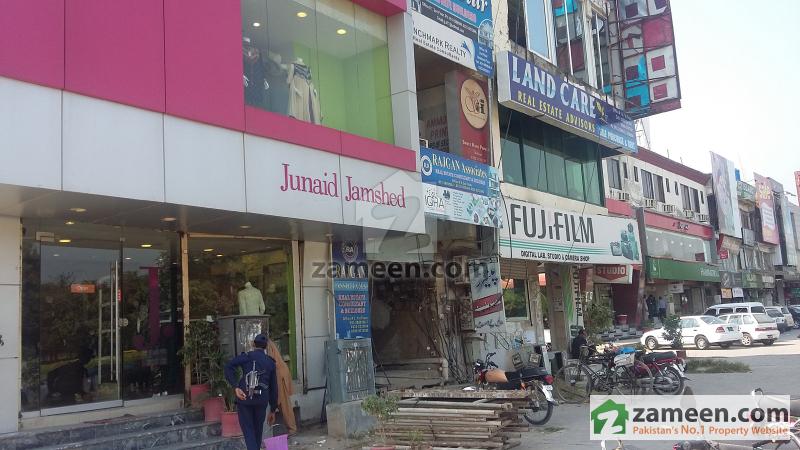
Another interesting feature of business in Pakistan is that the shops and offices were almost “woman free”. In some more upscale shops you may see a female clerk, but essentially business is a male enterprise. What really hit me was the absence of “the woman’s touch” in the décor and design of the offices and shops. Think of a garage mechanic’s shop in a village in North America and you have a sense of the ambience that I am talking about. That took a lot of getting used to for me.
One of my first experiences with this ambience was with the school’s procurement officer, my friend Qadeer. He took me to a warehouse area near the airport to secure a “Liquor Passport” which would enable me to purchase liquor, wine or beer in Pakistan. And I thought Malaysia was a conservative Muslim culture!
The most formidable task in our first week was to buy curtains, furniture upholstery, bedspreads and carpets for our huge house. This involved an endless journey through every fabric shop in Islamabad and some in Rawalpindi. I got to the point that the mere sight of a fabric store would give me the shakes – a psychological disorder that I have identified as phabric phobia.
Rose and Lory were really into the fabric fiasco. Rose was seriously a great help in this endeavor and I was even allowed to skip some of the trips. On too many occasions, I would find a bolt of fabric to sit on and just hide out until Lory would find me to patiently ask, “What do you think of this pattern for the (living room, bedroom, bathroom / curtains, couches, chairs)? To which, I would invariably answer, “Love it / Perfect! Can we go home now?”
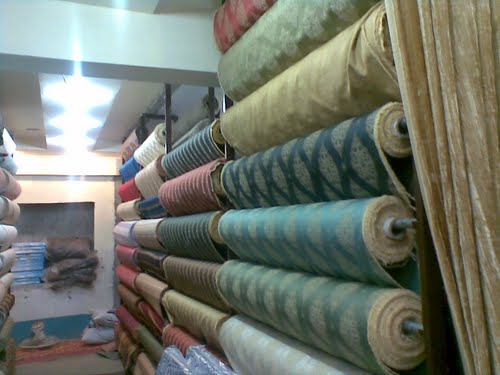
My main job in the first week was to replace the electronic appliances that we had sold in Kuala Lumpur – TV, VCR, VCD player and a stereo all housed in a newly purchased oak entertainment center. These procurements, with my new buddy Qadeer, was somewhat less painful than shopping for curtains and furniture upholstery.
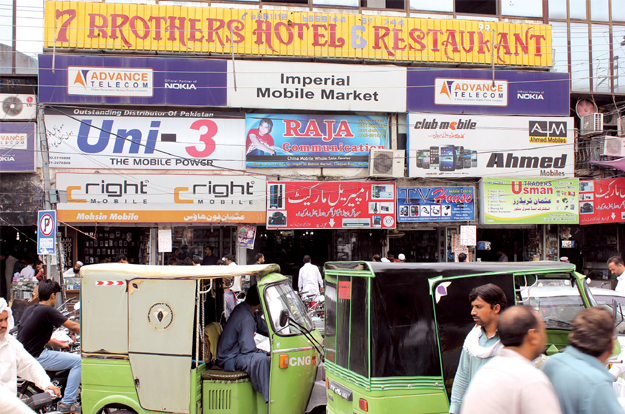
One of the interesting cultural shopping phenomena in Pakistan is the “brother fall-back”. Whatever appliance I was looking for, if not available in that shop, was available – “Yes, my brother has! Wait ten minutes. Have some tea.” The ten minutes of course was fluid, and the “brother” did not always come through. Nevertheless, the intention was always sincere, and the tea was always good!
Household Staff
Our first week in Islamabad we hired our household staff. This was new for us in that we had hired help for years starting in Canada, but it was part time work and only one person. In Pakistan there was an expectation that expatriates would hire a number of “specialists” to get you through the day.
In Pakistan Muslim women do not work as domestics. Some expats hired Christian couples, which meant the wife was often the cook, but most of us had all male staffs. The main man is your cook. He runs the place. He does all the cooking, the shopping, and much of the cleaning. The cook is like your mom; he waits up to see you come home and he has breakfast ready in the morning when you crawl out of bed.
Because the cook is your mom, you want to make sure that the guy you hire has mom’s personality – or not. We hired three different cooks before we got the perfect match for us. His name is Hafiz, and he really took cared of us. He did all the shopping and as much of the menu planning as we wanted. Hafiz was so perfect, that over ten years after we left Pakistan, he was still working for our close friends and Koh Lanta neighbors, Harry and Jaunice Ansell. How’s that for continuity?
Most cooks bring with them, a sweeper. This is an interesting position, because sweeping includes cleaning toilets and taking out garbage, jobs that are beneath the dignity of any self-respecting cook. The sweeper is often a Christian and this position bears a resemblance to the Hindu outcaste (he who is without caste). Our sweeper was Nawaz, a very gentle and mild mannered man. He performed his duties with dignity. One of Nawaz’s perks was that, as a Christian, he had a permit to purchase beer. But I never asked Nawaz to pull beer for me!
We had three part time employees, a dhobi, a gardener, and a security guard – Naseer, Rasheed, and Elias. Naseer was our dhobi. He came in twice a week and did all the laundry. Naseer moonlighted as a bartender. He was a very sophisticated individual whose English was impressive. We often hired Naseer for parties and he honored us by inviting us to his daughter’s wedding.
Rasheed was our gardener. He came everyday for two hours, and took care of the front and back garden. He impressed Lory by putting fresh flowers in the house each day. Elias was our first house guard. He also washed the car each day. Elias lived in one of the domestic quarters in the house. After 9/11 all teachers were assigned 24-hour security provided by a security company. We then had two guards on rotation.
Our final Pakistani employee was one of the most memorable. We took on our driver Iqbal on a short-term contract because we were hosting a new teacher and her family until they could find accommodation. The idea was that Iqbal would drive for the family while we were working. They had one trip with Iqbal and decided to use taxis after that. Not a good sign. Iqbal tended to be a very aggressive driver. However, we would keep Iqbal on for three years and we acquired a number of good Iqbal stories as our reward.
So that completes our team of seven that supported us during our time in Islamabad. They were our family. They took care of us, and we tried our best to take care of them.
Traffic in Pakistan

As in many Asian countries, Pakistan follows the British model of driving on the “wrong” side of the road. It is called left hand drive, I believe. What does that mean? It means were driving on the left side of the road in Islamabad. For us this was no big deal, as we had been doing that in Kuala Lumpur for three years. But that is only a minor challenge you face driving in Pakistan.
Our friend and colleague Kathi Ambrogi said it best: “There are no real traffic rules in Pakistan, only traffic suggestions.” If you pull out in front of oncoming traffic, the vehicles will generally stop for you. For example, when you have a green arrow for a right hand turn (which means crossing a lane of oncoming traffic) the oncoming traffic keeps coming on, until you pull out in front of them. It is anybody’s guess as to whether the vehicle will stop or at least slow down for you, so you have to play that by ear. Iqbal was very skilled at stopping traffic!
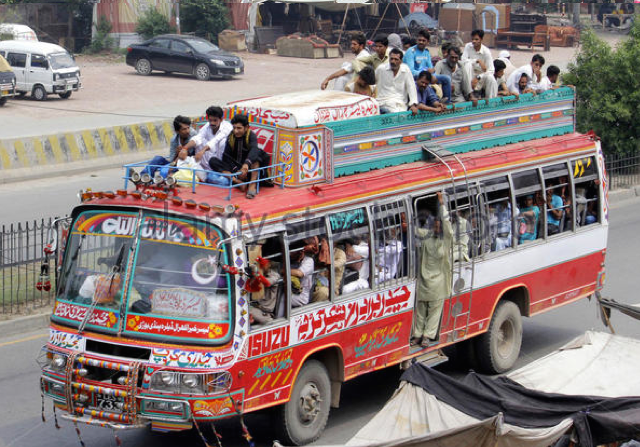
It was quite common to see two vehicles coming at you, taking up both lanes of the road. In these cases, the oncoming offender tries to pull ahead and get into his own lane before the head-on collision. We had a tendency to slow down and drive onto the shoulder of the road (if there was one), just in case the offending vehicle is not able to manipulate that particular maneuver.
Another interesting aspect of traffic in Pakistan is the variety of modes of transportation. We frequently saw a motorcyclist and a bicyclist holding hands as the latter catches a free pull – a new form of tandem cycling. The most impressive vehicles on the road were the large trucks and midsize buses that are highly decorated in colorful paintings – hard to describe. A third phenomenon is the wagon carts that are pulled by horses, donkeys or water buffaloes on the streets and highways. We frequently saw these carts on our drive to school and in the rural areas. We also enjoyed seeing them in the downtown areas of most cities in Pakistan, other than Islamabad. We enjoyed all aspects of traffic in Pakistan.
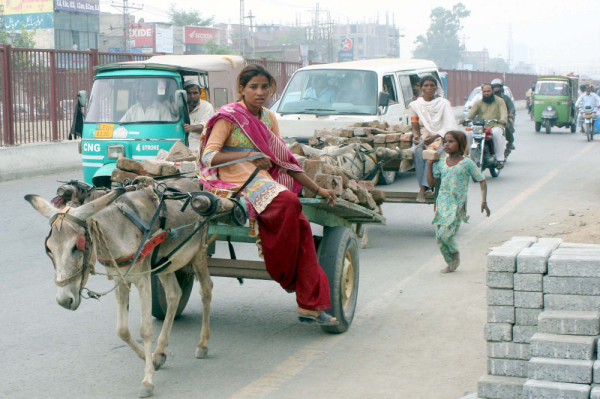
Even though we had a driver during the weekdays, I did a lot of driving in Pakistan. I drove within Islamabad and Rawalpindi, up into the Muree and Margalla hills, to Taxila and Peshawar, and even to Mingora in the Swat Valley. Driving to Rawalpindi, whether to the Pindi golf course or to visit our friends Shamsa and Saoib Mirza, was always a challenge. The narrow winding streets and the unpredictable traffic kept me focused!
Surprisingly, I came to appreciate the common sense approach to driving with “traffic suggestions”. Why waste your valuable time sitting at stop light when there are no vehicles in sight? Why not make a U-turn in the middle of the road, or in an intersection? If the traffic is backed up in your lane, why not create another lane and be on your way? In Pakistan, I learned to drive in a manner that satisfied my needs, without inconveniencing anyone else.
Our driver Iqbal was a master of road manipulation in Pakistan. He could out-bluff anyone on the road. Lory was almost too subtle to manage Iqbal. He had a tendency to race everywhere and Lory would say, “I’m not in a hurry, Iqbal. Are you?” He would smile, and to my surprise slow down a little bit. Inspite of frequently being upset with Iqbal’s aggressive driving, Lory herself was greatly influenced by Iqbal. One summer vacation in Hawaii, during our Islamabad years, Lory was driving on an “on ramp” to the freeway. Noticing lots of space between the two lanes of traffic, Lory instinctively created a third lane and cruised through the traffic, much to the horror and chagrin of the local drivers.
The Expats Best Kept Secret
From July 2000 through June 2004 Pakistan suffered many tragedies. After 9/11 most expat teachers were evacuated prior to the invasion of Afghanistan. When we were called back, members of our school community were killed and others injured in the bombing of the International Church in Islamabad. Later the Muree Christian School near Islamabad was the target of a terrorist attack. In spite of this and several other acts of terrorism, we did really enjoy our life Pakistan, and we still agree that Islamabad is the expats best kept secret.
We had some great travel adventures within the country even as travel restrictions tightened. We traveled to the Swat Valley several times, and enjoyed searching out antique furniture in the area. We frequently visited the cool foothills of Margalla and Muree. We did a day long hike from Taxila through the Margallas to Islamabad that was like stepping back into Biblical times. A twelve-hour camel safari, through the Margallas, convinced me never to get, nor fall off, another camel in this lifetime.

On two occasions we took the steam engine train from Peshawar to Khyber Pass, and looked over the potential war zone between Pakistan and Afghanistan.
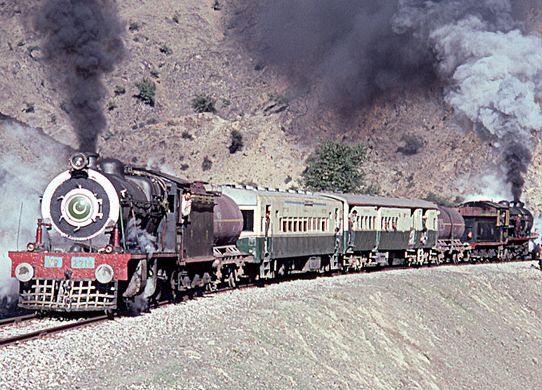

We visited and toured the beautiful city of Lahore more than once. With our dentist, philanthropist and air balloon enthusiast, we drove to Jelum and flew over Rohtas Fort, built by a Pashtun king in the sixteenth century. We landed in a farm field where we were greeted by thirty gleeful children from the nearby village.

Perhaps our most unusual Pakistani adventure was our taxi drive to the southern Punjab city of Multan, and even further south to Fort Derawar. Relatively untouched by tourism, Multan gave us total cultural immersion. Fort Derawar, built by ninth century Rajput ruler, is a surprising vision in the remote Cholistan Desert. The forty bastions of the fort are visible for miles, as you drive through the desert.
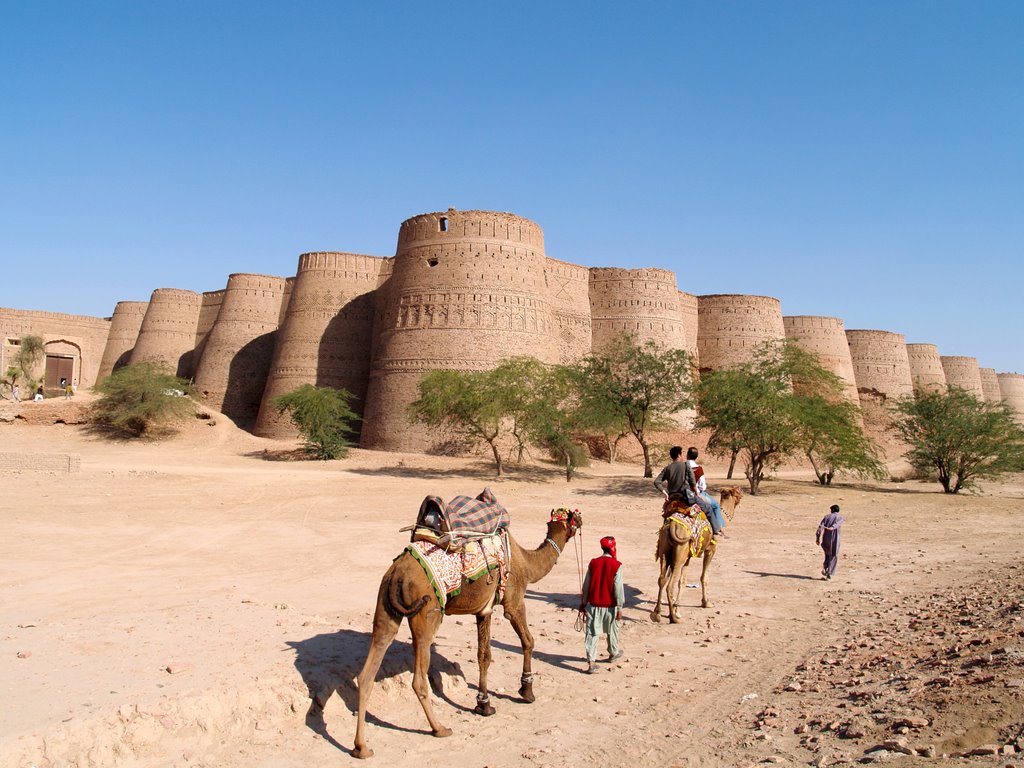
But most of all, we loved Islamabad. Many of the friendships we made in Pakistan, both expats and nationals, remain our closest bonds today. We treasure the memories of our Pakistan experience.

Wow – what an experience! Love the term phabric phobia!! I know all about that. 🙂
LikeLike
Lory learned from that experience. When we moved to Jo’burg she went to a high-end designer curtain boutique and said, “Here,’s what I want. Do it!” And walked away. Painless.
LikeLike
I think I’ll stick to driving in slightly more familiar traffic, thanks!
You’ve certainly experienced many different ways of life over the years (decades).
LikeLike
I love the pictures, specially city of Multan, just like the in the movie.
LikeLike
Multan was a very special experience for us, Fitri. Some places are more “off the grid” than others!
LikeLike
Ha Normflach, I would like to get in touch with you. I have a question about using one of your photos for a tv show in the Netherlands. Would you like to send me and email on kirsten.gerritsen@skyhightv.nl.
Kind regards,
Kirsten Gerritsen
LikeLike
Hi Kirsten,
Which photo did you want to use?
Norm
LikeLike
Hi Norm,
I would like to use the first picture of Islamabad.
Kind regards,
Kirsten
LikeLike
Hi Kirsten,
I posted the Pakistan blog entry years after we had lived there, so most of the photos are from google images. As I looked for the first photo, I discovered that Google Images has credited my blog with at least one of the other images I used. Bottom line, I have no ownership of the image I used to reflect our experience in Pakistan.
Norm
LikeLike